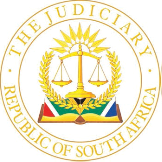4

IN THE HIGH COURT OF SOUTH AFRICA
(EASTERN CAPE DIVISION, MAKHANDA)
CASE NO.: CA R 134/2022
In the matter between:
THEMBILE YAWA Appellant
and
THE STATE Respondent
APPEAL JUDGMENT
GQAMANA J
[1] The appellant was arraigned in the Regional Court sitting at Kirkwood for murder, assault GBH and attempted murder. He was sentenced to 15 years’ on count 1, 6 years’ imprisonment on count 2, and 12 months’ imprisonment on count 3. The sentence on count 2 and 3 was ordered to run concurrently with the sentence on count 1.
[2] The appeal is against both the conviction and sentence. However, the challenge that the appellant encountered is the incomplete record of the trial proceedings. The record forms the foundation of the appeal process and without the complete record the administration of justice suffers.
[3] In this appeal the appellant’s entire evidence and the judgment of the court a quo is missing, despite all the efforts by the parties and the presiding magistrate to reconstruct the record. The magistrate ascribes the challenge of reconstruction of the record to the delay between the time of the conclusion of the trial and the period that he was approached for reconstruction.
[4] The question now for determination is whether, the absence of the missing record has the effect that the appeal could not be fairly determined.
[5] An accused’s constitutional right to a fair trial, which includes the right of appeal to a higher court is sancrosanct.
[6] In the absence of the transcript or any reconstruction of the missing portion of the record and the judgment of the court a quo, we as the appeal court, are unable to know what facts the magistrate found as proven. Without the appellant’s evidence and the judgment, we would not be able to do justice to the appeal.
[7] In S v Chabedi1 at paras 5-6, the SCA said:
“The requirement is that the record must be adequate for proper consideration of the appeal.
The question whether the defects in a record are so serious that a proper consideration of the appeal is not possible, cannot be answered in abstract. It depends, inter alia, on the nature of the defects in the particular record and on the nature of issues to be decided on appeal.”
[8] As mentioned in paragraph 2 above, the appellant challenge both the conviction and the sentence. Without his evidence and the judgment, it is impossible to consider the issues raised in this appeal. The nature of the defects in the record are so serious that a proper consideration of the appeal is not possible.
[9] The importance of the proper record of trial proceedings and its connection of the right to a fair trial was authoritatively confirmed in S v Schombee and Another2 and the Constitutional Court said:
“[19] It is long established in our criminal jurisprudence that an accused’ right to a fair trial encompasses the right to appeal. An adequate record of trial court proceedings is a key component of this right. When a record is inadequate for a proper consideration of an appeal, it will, as a rule, lead to conviction and sentence being set aside.”
[10] In the light of all the above reasons, we are unable to consider the appeal and as such the appellant’s rights to a fair appeal has been so compromised. That being the case the proper remedy is to set aside the trial proceedings in their entirety.
[11] In the result the following order is made:
1. The appeal is upheld.
2. The conviction and the resultant sentences of the court a quo are set aside.
3. The appellant must be released from prison immediately
4. The Registrar of this court is directed immediately to take steps to ensure that this judgement is delivered to the Head Kirkwood Prison.
N GQAMANA
JUDGE OF THE HIGH COURT
I agree:
A GOVINDJEE
JUDGE OF THE HIGH COURT
APPEARANCES:
Counsel for Appellant : Mr M T Solani
Instructed by : Legal Aid
Makhanda
Counsel for Respondent : Adv H Obermeyer
Instructed by : Director of Public Prosecutions
Gqeberha
Heard on : 14 February 2024
Judgment Delivered on : 14 February 2024
1 2005 (1) SACR 415 (SCA).
2 2017 (2) SACR (!) CC.
